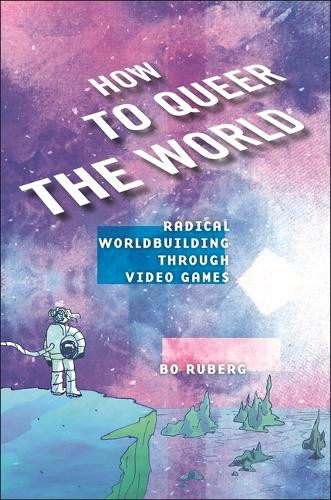Description
What video games teach us about building a better world
What does it mean to build a world? Worldbuilding is traditionally understood as an expression of storytelling across media forms. Yet, as video games show us, worldbuilding does not necessarily need to center narrative elements. Instead, new worlds can allow us to reimagine existing structures, conventions, and constants. Doing so gives us the tools to queer the world around us.
How to Queer the World argues that video games provide us with keen insight into worldbuilding. With these insights come a new understanding of the ever-elusive ideals of queer worldmaking. Video games challenge us to address how worlds are built through underlying systems rather than surface-level representation. They also offer opportunities to envision alternate and queer ways of living, loving, desiring, and being. Each of the chapters in this book presents a close reading of a video game that illustrates one way of building worlds and encoding them with meaning, focusing on elements of digital media often overlooked as technical rather than cultural.
From the design of game mechanics and user interfaces to the use of graphics software and physics simulations, Bo Ruberg argues that these aspects of video games represent a critical toolkit for seeing the work of worldbuilding differently-in video games and beyond. Simultaneously, each of these video games models an approach to what Ruberg terms "queer worldbuilding." Queer worldbuilding radically remakes the world by destabilizing the fundamental logics of our own universe: who we are, what we can do, how our bodies move, and how we exist within time and space.
About the Author
Bo Ruberg is Professor of Film and Media Studies at the University of California, Irvine. They are the author of three books, Video Games Have Always Been Queer, The Queer Games Avant-Garde: How LGBTQ Game Makers Are Reimagining the Medium of Video Games, and Sex Dolls at Sea: Imagined Histories of Sexual Technologies.
Reviews
An original intervention into critical game studies, broadening and deepening a discussion that Bo Ruberg has long engaged in. Building on their previous work in queer game studies-as a critical figure in that discourse-Ruberg now picks up the thread of key concepts in recent queer theory. The examples chosen are great flashpoints for opening up conversations on decolonization, representation, and other matters of inclusivity, allowing for new directions and possibilities. * Soraya Murray, author of On Video Games: The Visual Politics of Race, Gender and Space. *
Book Information
ISBN 9781479831999
Author Bo Ruberg
Format Hardback
Page Count 304
Imprint New York University Press
Publisher New York University Press
Details
Subtitle: |
Radical Worldbuilding through Video Games |
Imprint: |
New York University Press |











